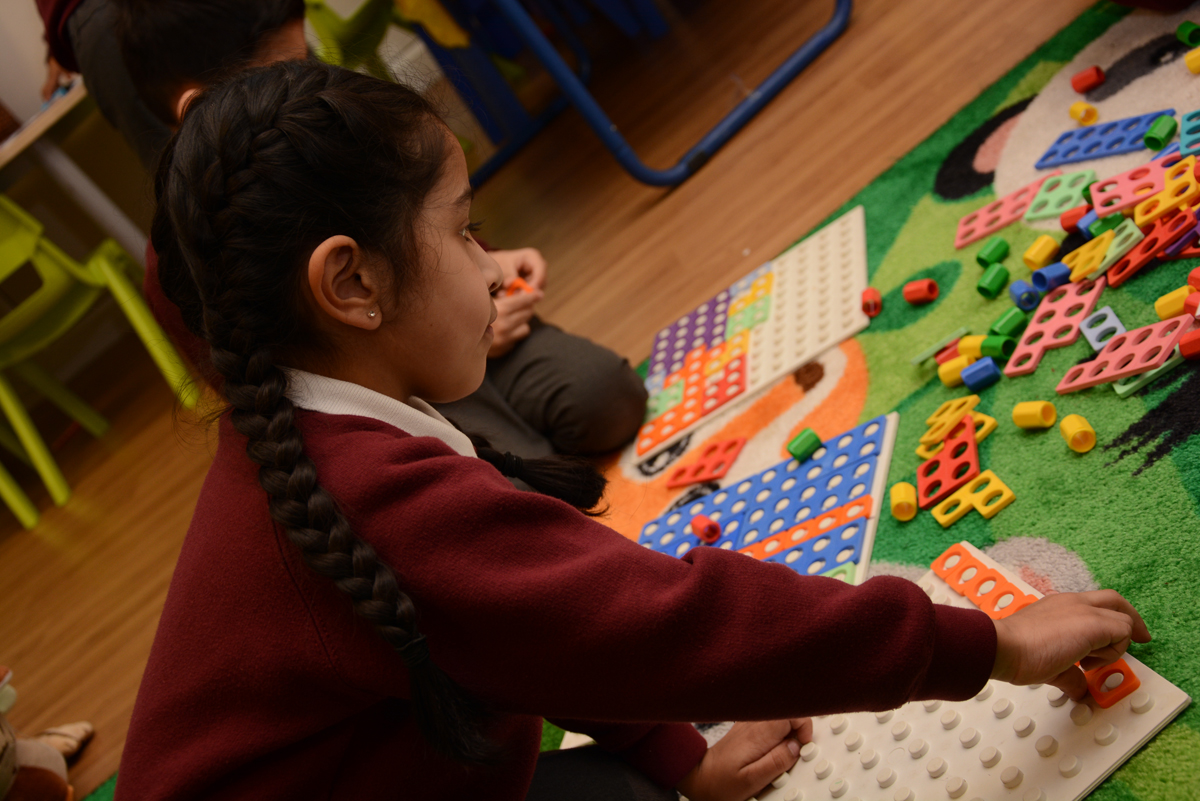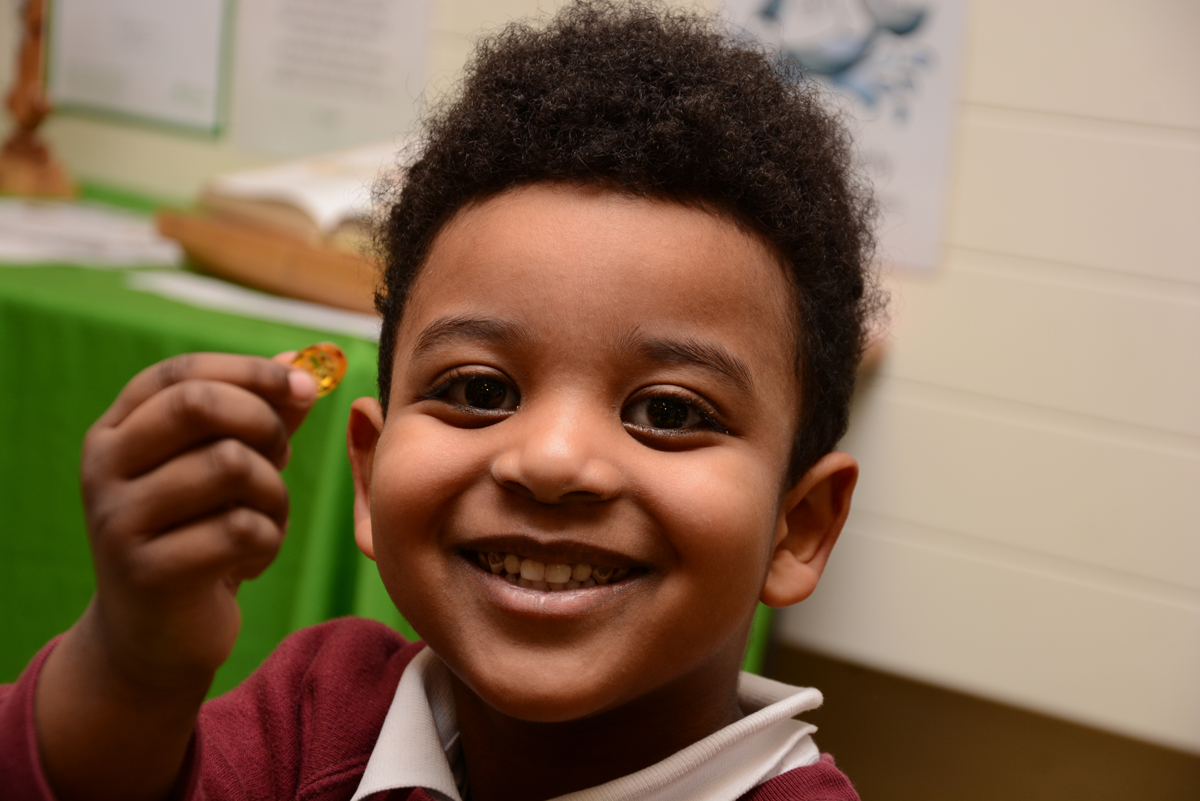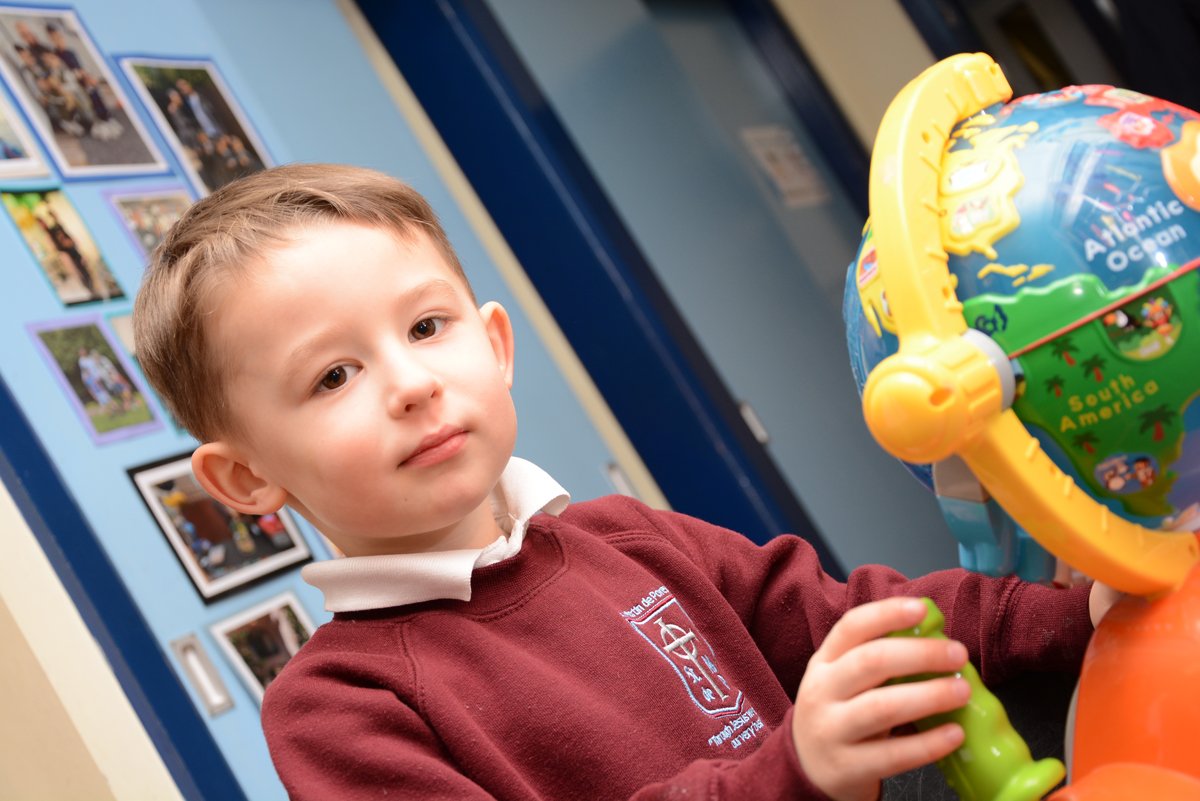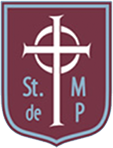Early Years Foundation Stage (EYFS)
Intent
In the EYFS at St. Martin De Porres, the curriculum is designed to: recognise children’s prior learning from previous settings and their experiences at home; provide first hand learning experiences; and allow the children to build resilience and ambition.
Every child is recognised as a unique individual and we celebrate and welcome differences within our school community. We aim to work in partnership with parents, carers and other settings to provide the best possible start at St. Martin’s, ensuring each individual reaches their full potential regardless of their various starting points.
each individual reaches their full potential regardless of their various starting points.
At St Martin’s, we recognise that oracy not only improves academic outcomes, but is a life skill to ensure success beyond school, in life and future employment. Oracy develops children’s thinking and understanding, which in turn promotes self-confidence, resilience and empathy which support the child’s well-being.
We believe that high level engagement ensures high level attainment. We therefore provide an engaging curriculum that maximises opportunities for meaningful cross-curricular links and learning experiences.
Throughout their time in EYFS we aim for the children to develop a sense of belonging to our school community, be ready to transition into year 1 the following academic year and make good progress from their individual starting points.
Implementation
We recognise that children will learn most effectively when they are healthy, safe and secure, when their individual needs are met and when they have positive relationships with the adults who care for them. We aim to provide a setting that encompasses a safe and stimulating environment where children are able to enjoy learning and grow in confidence and independence.
Our Reception classes follow the Early Years Foundation Stage curriculum and work towards the Early Learning Goals.
There are 7 areas of learning: 3 prime areas and 4 secondary areas.
Prime Areas
Communication and Language development
- Listening, attention and understanding.
- Speaking.
Personal, Social and Emotional Development
- Self Regulation
- Managing Self
- Building Relationships
Physical Development
- Fine motor
- Gross motor
The three prime areas of learning are our focus for the first half term to ensure that children are ready for the secondary areas of learning. The children are given daily opportunities to practise and progress in these areas and any barriers to learning resulting from gaps are reported quickly to parents and acted upon in school.
Secondary Areas
Literacy
- Comprehension
- Word Reading
- Writing
Mathematics
- Number
- Numerical Patterns.
Understanding the World
- Past and Present
- The Natural World
- People, Cultures and Communities
Expressive Arts and Design
- Creating with materials.
- Being imaginative and expressive
Each half term, EYFS staff introduce a new theme to provide inspiration for learning, whilst providing the flexibility for children to follow their own interests and ideas. Children learn through a balance of child-initiated and adult-directed activities. The timetable is carefully structured so that children have directed teaching during the day these sessions are followed by small focused group work. This allows the teaching staff to check understanding, differentiate the activities and give feedback in real time.
to follow their own interests and ideas. Children learn through a balance of child-initiated and adult-directed activities. The timetable is carefully structured so that children have directed teaching during the day these sessions are followed by small focused group work. This allows the teaching staff to check understanding, differentiate the activities and give feedback in real time.
We recognise that children are powerful learners and every child can make progress with the right help. One of the most powerful ways to support children’s learning is through ‘Scaffolding’. This stems from the belief that a child has two levels of development:
- What they can do on their own
- What they can do with the help of an adult
We believe it is important to give children opportunities to consolidate existing skills but the job of the adult is to scaffold emerging ones.
This scaffolding can be done in many ways with the aim always being for the child to eventually do it independently, confidently and consistently.
Some of these ways are listed below:
- Modelling
- Prompting
- Offering some help e.g. writing the first letter of their name and they have to write the rest.
- Doing it for the child
Literacy
Reading is at the heart of our curriculum and our aim is to encourage a love of reading right from the start. Each day starts with Guided Reading in line with the rest of the school. Each week the children visit the school library and choose a new story of their choice, in addition to this the children take home reading material that matches their GPC’s to allow them to practise decoding. In EYFS we use stories to improve oracy, vocabulary and comprehension. The children have 2-3 Literacy mornings a week.
Phonics
We follow the Read Write Inc programme to ensure consistency across the school. During the Autumn term the children are taught the initial sounds and how to use their phonic knowledge to decode words through Fred talking and blending. They are taught as a whole class. The children are assessed every half term and grouped according to their stage. The children are streamed across key stage 1 for their phonics teaching in the Spring term. This is to ensure that the children are being taught by stage not age.
Maths
In Reception, we follow the White Rose Maths Scheme. High quality learning environments and meaningful interactions with adults, support children in developing mathematical thinking and discussion. Pupils learn through games and tasks using concrete manipulatives and pictorial structures and representations which are then rehearsed applied and recorded within their own child-led exploration. The children have 2 maths mornings a week.
 We love to provide children with first hand opportunities that lots of them have not experienced before or that enhance their learning in school e.g. visiting a farm, a church and a restaurant. We ensure that all of our visits are learning related and will provide the spark for further immersion in a theme or project.
We love to provide children with first hand opportunities that lots of them have not experienced before or that enhance their learning in school e.g. visiting a farm, a church and a restaurant. We ensure that all of our visits are learning related and will provide the spark for further immersion in a theme or project.
We provide effective and focused intervention for those children who are finding learning challenging and are not on track to meet national expectations at the end of the year to enable them to reach their full potential. This is provided in an inclusive and flexible manner depending on the needs of the individual children. Support from parents is also enlisted at an early stage to ensure that the children have every chance to achieve the Early Learning Goals.
A range of formative and summative assessments are used to identify what children know and understand and to target their next steps in learning. The EYFS team collect evidence of children’s learning through work completed in their work book, independent work, observations and photos. This is also collated in a half termly floor book. The judgements of our school are moderated with other schools which means judgements are secure and consistent with government guidelines.
Impact
The impact of the EYFS curriculum is reflected in having well rounded, happy and confident children. The majority of children transition into Year 1 with key knowledge and overarching concepts to enable them to access the requirements of the National Curriculum. For those that don’t there is clear communication between practitioners to make sure that effective intervention is put in place.
Our children have varied and diverse starting points. Therefore, we have high expectations to ensure that all children make ‘good progress’ across all of the areas of the EYFS curriculum. Progress is evident in learning journals, books and data.
At the end of EYFS our children:
- have improved communication skills, both written and oral. Our children also listen respectfully and with tolerance to the views of others,
- take pride in all that they do, always striving to do their best,
- demonstrate emotional resilience and the ability to persevere when they encounter challenge,
- develop a sense of self-awareness and become confident in their own abilities,
- are kind, respectful and honest, have a positive understanding of how everyone is unique and different,
- know that they belong to the family of St. Martin de Porres Catholic Primary school.
 St Martin de Porres
St Martin de Porres 


